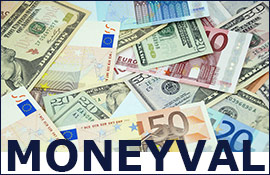Technical assistance
International organisations and a number of other stakeholders (such as representatives of civil society) often participate in developing technical assistance projects in countries where structural weaknesses of the national framework are identified. Technical assistance initiatives address a number of issues, tailored to the need of the recipient. This mainly focuses on developing more effective state institutions, legal frameworks and policies. In the AML/CFT context, technical assistance projects naturally focus on the particular shortcomings of the country, and range from enhancing compliance of domestic legislation with international standards to improving the effectiveness of the implementation of the legal and structural framework already in place. Given the broad scope of AML/CFT issues, the projects often involve cross-cutting issues, such as asset recovery, enhancing police/prosecutor cooperation, or increasing the focus on combatting the fight against organised crime.
Technical assistance projects take many forms: providing expert opinions on draft legislation; organisation of courses; trainings and seminars on technical or policy issues; organisation of workshops; assistance in putting into place awareness-raising campaigns and events; or practical development of technical resources (assistance in the establishment of institutions or technical infrastructure – such as the development of IT systems). Such activities may also be undertaken simultaneously.
MONEYVAL, as a monitoring body, analyses the systems put in place by its member states and jurisdictions, identifies weaknesses and shortcomings of the AML/CFT frameworks and consequently formulates recommendations on issues which should be addressed by the authorities. It does not, however, provide assistance in remedying the deficiencies identified. Nevertheless, the recommendations formulated by MONEYVAL are a valuable source of information when identifying issues which require technical assistance.
Within the Council of Europe, technical assistance in AML/CFT matters is provided by the Economic Crime Unit at the Directorate General of Human Rights and the Rule of Law, which puts in place projects in a number of MONEYVAL and other jurisdictions. The projects are predominantly crosscutting, involving measures to combat corruption, money-laundering, as well as strengthening of the criminal justice and law enforcement systems.
The Economic Crime Unit at the Directorate General of Human Rights and the Rule of Law is currently implementing several AML/CFT and AR-related activity programmes/projects. For further information on previous and on-going projects, please refer to Action against economic crime website.
Additional technical assistance is received by MONEYVAL jurisdictions through other international organisations, in particular the World Bank (this mainly in relation to the development of national risk assessments), the IMF (in particular in relation to strengthening the soundness of the financial sector).
A further key stakeholder is the EU, which partially participates in the realisation of some CoE technical assistance projects (see above) and also provides further assistance within the IPA or Twinning Projects, as part of the pre-accession or neighbouring policies.
Relevant Council of Europe websites
Conference of the Parties (COP) to the CETS 198



